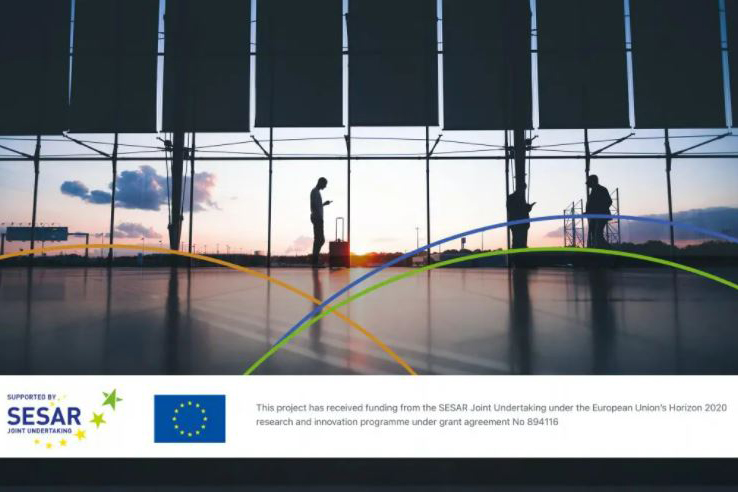
Telerehabilitation for people who have suffered a stroke and have chronic injuries
June 18, 2021
Processing of AngioTAC images to identify and characterise the perforator flap of the inferior epigastric artery
June 18, 2021The Data Management Group (DAMA UPC) has started to participate in the European project SYN-AIR, whose objective is to develop a smart contracts framework to address datasharing among transport service providers, to offer their passengers a real multimodal experience.
Land and air transport service providers need to collaborate to facilitate a seamless door-to-door (D2D) journey. This collaboration must involve datasharing between the service providers in a framework of trust.

The project has four defined objectives. First, to establish common goals of service providers to collaborate and share data at planning and operational level. Second, to assess the impact of data sharing to determine the type of data usable by suppliers at each phase (strategic and tactical/operational). Third, to create a work framework through smart contracts for use between suppliers with the goal of guaranteeing a seamless door-to-door journey for users. Finally, the fourth complementary objective is to analyse the impact of datasharing from the Travel Companion app that emerged from the European project My-Trac to help to improve the user experience in public transport.
SYN+AIR is developed in three areas of work: business policy, data exchange and technology exploration. In the area of business policy, the project will study which correlations exist between the business logic of each supplier and the impact at the time of exchanging information that occurs when a transport user creates or validates a journey. Regarding datasharing, work will be done to determine which are these data and at what point they can be exchanged, and to quantify the potential benefits for transport service suppliers in this scenario. Finally, in relation to the exploration of the technology, it will be researched how to facilitate journeys through smart contracts that enable datasharing between suppliers, and general data will be studied in the applications of journeys and how these can help the suppliers.
The Data Management Group (DAMA) is the coordinator of the project. Other participants include the Greek company Aethon Engineering, the Technical University of Bari (Italy), Faculty of Transport and Traffic Engineering (UB-FTTE) of Serbia, the Belgian consultant Franck Dumortier and the spin-off Sparsity Technologies.
The project, which started in November 2020 and lasts two years, is funded by the European Union as part of the H2020-EU 3.4.7 - SESAR JU programme with a budget of €997,250.
Technology
Sector
You want to know more?
Related Projects
- The Barcelona Innovative Transportation (BIT), the Research Center in Automotive and Advanced Mobility (CER-AMA) and The Future Mobility Research Hub (CARNET) research groups from the Universitat Politècnica de Catalunya - BarcelonaTech (UPC) are participating in the E-MED project, which aims to optimise energy and resource efficiency in public transport systems by addressing energy price fluctuations through smart and participatory solutions across the Mediterranean region.
- A research team involving the Barcelona Innovative Transportation (BIT), inLab FIB, CARNET Barcelona – Future Mobility Research Hub (CER-AMA), and the Department of Computer Architecture (DAC) of the Universitat Politècnica de Catalunya - BarcelonaTech (UPC) is driving the i-MovE project, which aims to incorporate multisectoral data to provide much more accurate and valuable information for the mobility sector. The project develops four use cases focused on both companies and mobility authorities, covering public and individual transport, using the UPCxels demonstrator.
- The Research Center for Supervision, Safety and Automatic Control (CS2AC-UPC) at the Universitat Politècnica de Catalunya - BarcelonaTech (UPC) has coordinated the SaCoAV project, focused on researching new methods and tools to ensure the safe coordination of autonomous vehicles in urban environments.
- As part of the USEFUL project, the Centre for Sensor, Instrumentation and Systems Development (CD6) at the Universitat Politècnica de Catalunya - BarcelonaTech (UPC) has equipped a low-emission vehicle that will drive through the streets of Terrassa with optical sensors integrated into a complex system for data computing, visualisation, and storage. This car will collect and store thousands of anonymous driving data points, which will be used to develop more accurate algorithms for autonomous driving.




